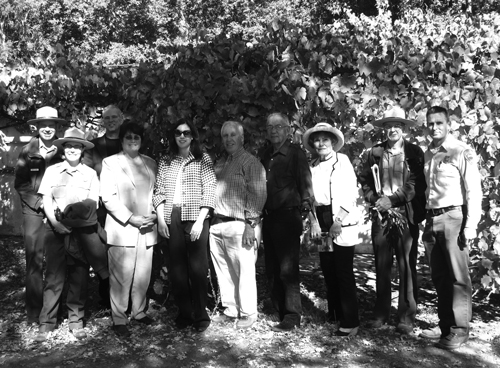UCLA recently created the La Kretz Center, which brings together various organizations throughout the state of California to conserve Los Angeles’ ecosystem and Southern Californian biodiversity.
The La Kretz Center will help inform the public further about the wonders that the Los Angeles ecosystem has to offer and where biologists can stress the importance of conservation, said Philip Rundel, a UCLA professor of ecology and evolutionary biology.
“Conservation challenges occur at a rapid rate,” said Glen MacDonald, director of UCLA’s Institute of the Environment.
“We need conservation science in real-time, where researchers and scientists, the type of people UCLA can offer, will be working to fight environmental issues as they arise,” he added.
Macdonald said the center will be used as a model for Mediterranean ecosystems similar to Los Angeles.
The center will incorporate lectures, workshops and symposiums that will connect biologists to the public in ways which were once impossible in Southern California because of the lack of facilities and events that conservationists have had, Macdonald said.
The La Kretz Center offices, named for Morton La Kretz, are located on UCLA’s campus at La Kretz Hall, as well as state and national parks areas located in the Santa Monica Mountains. With the support that state and national parks are giving to the center, areas owned and managed by these parks can be effectively used to hold events and discussions for the public.
The development of the program began when state and national park services contacted UCLA’s department of ecology and evolutionary biology and UCLA’s Institute of the Environment to create a public space where researchers, scientists, media outlets and the public can discuss hot topics on biodiversity and challenges that Southern California faces in terms of environmental conservation Macdonald said.
But without proper funding, the project came to a halt. Not until the involvement of La Kretz did the idea turn into reality, said Victoria Sork, dean of life sciences at UCLA.
“Mr. La Kretz was willing to give a gift that can make a difference,” Sork said.
La Kretz, who is a real estate developer, has also contributed to Cal State Los Angeles and other institutions in Los Angeles, Macdonald said. La Kretz declined to comment on his recent gift to UCLA.
MacDonald said the conservation of environments like Los Angeles is one of the biggest challenges of the 21st century, because of the increasing rate of urbanization. With more than 50 percent of the world’s current population living in cities, and 70 percent estimated to live there by 2025, Macdonald said the City of Los Angeles needs a program that will sustain our environment now more than ever.
The La Kretz Center is partnering with Stunt Ranch, the University of California’s natural reserve located in the Santa Monica Mountains, which is managed by UCLA. Stunt Ranch brings more than 4,000 grade school students from all over Los Angeles to partake in a program about the environment and to learn about the Chumash Indians who previously inhabited this archaeological site, Rundel said.
The center’s events are scheduled to appear on campus and the Santa Monica Mountains as soon as this spring.
